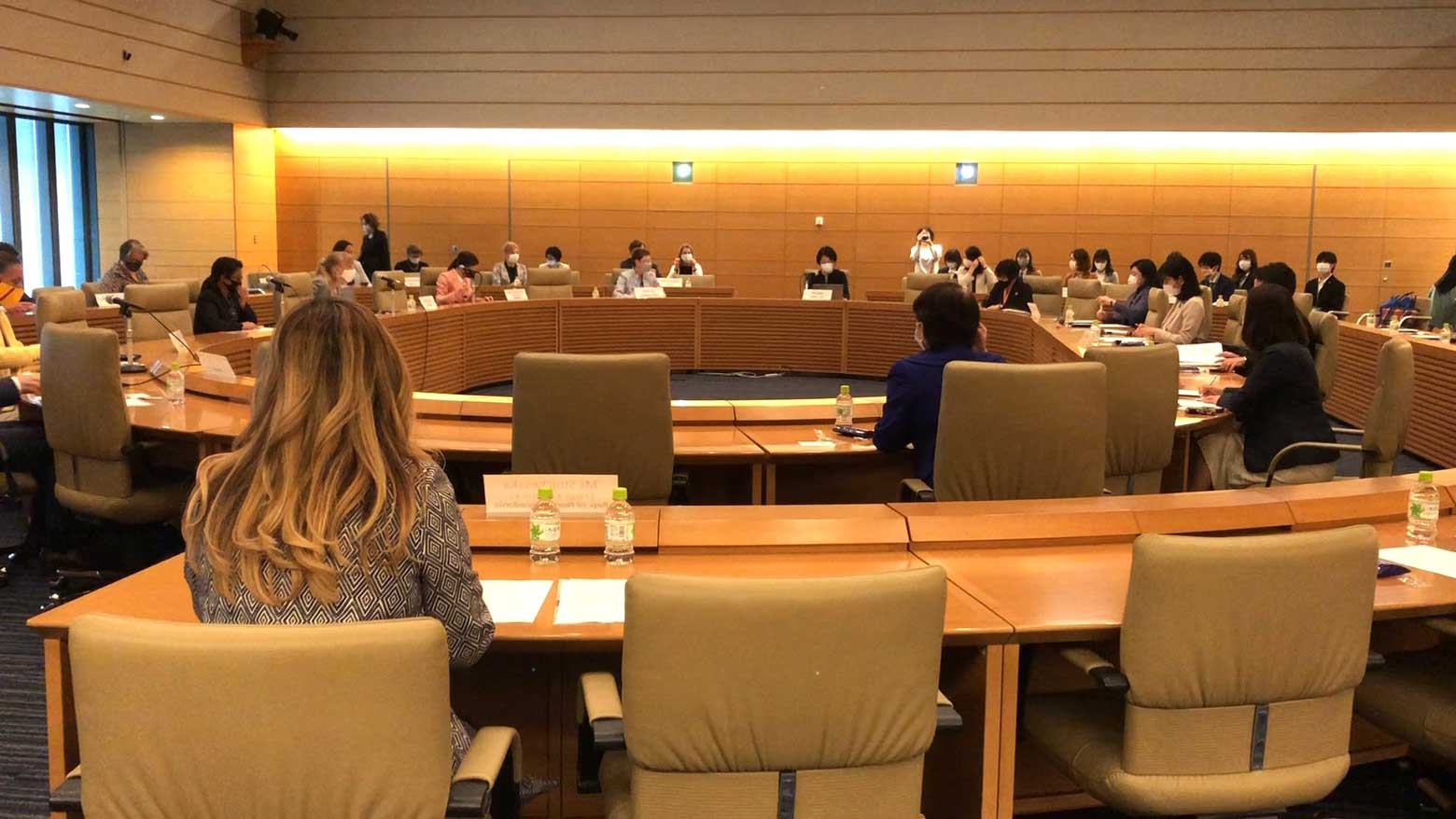Six ambassadors to Japan shared their thoughts on issues ranging from education to political participation to sexual harassment.
Anna Vatamaniuc, Moldovan Chargé d'Affaires
Vatamaniuc described her experiences in law school: “Even during my studies, some people would still emphasize that to be a good lawyer or a judge, you have to be a man.”
She urged participants to continue to work for gender equality as “little strokes fell great oaks,” adding that “seemingly impossible tasks can be completed or accomplished through small efforts.”
Ina Lepel, German ambassador
“I was surprised to find that women wagons in commuter trains during morning rush hours exist here in Japan.”
Lepel described a brief debate in Germany in 2016, in which women came out overwhelmingly against the implementation of a similar measure: “They felt that creating some protected spaces for women did not address the real problem, and that women should be able to feel as free and safe in public spaces as men.”
But she added that she appreciated the difficulty surrounding the issue: “Campaigns encourage other passengers not to look away when women face harassment in front of their eyes. But there are still too many such incidents happening.”
Melba Pria, Mexican ambassador
“Women are also the majority of workers in the frontline of the pandemic. They provide essential healthcare services and therefore face lots of additional risks and stresses, and equal pay is stubborn.”
Pria called for equal pay, saying she hoped “for a society where glass ceilings don’t exist.”
Watch Video 2:21
Pereric Högberg, Swedish ambassador
“If you are in a place where you take decisions politically, economically in your family, amongst friends, (you should) always think about how these decisions affect men and women differently. If you feel or think or see something wrong from a gender perspective, be courageous and raise your voice. I have chosen to do this myself.”
He added: “If we participate in meetings when there are only men sitting around the table, ask yourself why. And if there is no good reason, postpone the meeting and make sure that you have some women in it.”
As the only male participant, he noted, “This is usually the way women feel when they sit around tables.”

